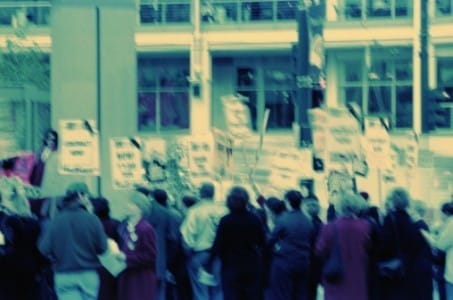Conventional business wisdom holds that having fewer chefs in the kitchen leads to faster decision-making. The ascension of crowdsourcing as a force in business is changing this convention, but only a few companies see it. These companies are working more closely with stakeholders today, which will lead to greater insights into the change needed for tomorrow. This “early warning system” will enable these companies to act more quickly and decisively than their peers, facilitating enhanced corporate agility that will allow them to capture new revenue.
The impact of society upon business is a megatrend that I call the “Society Strikes Back” movement. Over the past two decades, commerce has witnessed several megatrends; standouts include business process re-engineering (BPR), globalization, dot-coms and sustainability. All of these megatrends share a common bond—each challenged and forever altered the conventional rules of business, each created and constructively destroyed billions of U.S. dollars of market value.
As with other megatrends, the warning signs for Society Strikes Back were there for industry to see. With its voice amplified by social media (and the traditional popular media), society has become a formidable business stakeholder. The Occupy Wall Street movement is the current manifestation.
The Society Strikes Back movement, however, might be the first megatrend that is about society, not solely shaped by society. So what does this mean for industry?
Businesses that value nimbleness will move faster by involving, not ignoring, stakeholders in decision-making processes. Whether or not Society Strikes Back is truly a megatrend, more megatrends will emerge, and it’s highly likely that society will once again spark and shape these challenges to industrial convention. Just look at historical precedent. Arguably, a slice of society—in the form of entrepreneurs in the developing world—helped drive globalization. Society played an increased role in the dot-com revolution; the roots of the Internet can be found in ARPA-net, an experiment done by the military, an extension of society. Societal forces have both sparked and colored the sustainability movement.
Companies that build bridges to society will likely be the ones to receive the early read on coming megatrends.
GE is one such bridge-builder. The conglomerate is keeping its finger on the pulse of change in the smart grid field by asking the public, through its Ecoimagination Challenge, for its best ideas to bring the smart grid to life. Armed with this early-warning detection system and informed by the very people shepherding the approaching change, companies such as GE will enjoy a head start on their peers when that change comes. In other words, by inviting more opinions starting today, these companies—most likely including your competitors—will be more nimble than their peers come tomorrow.

























